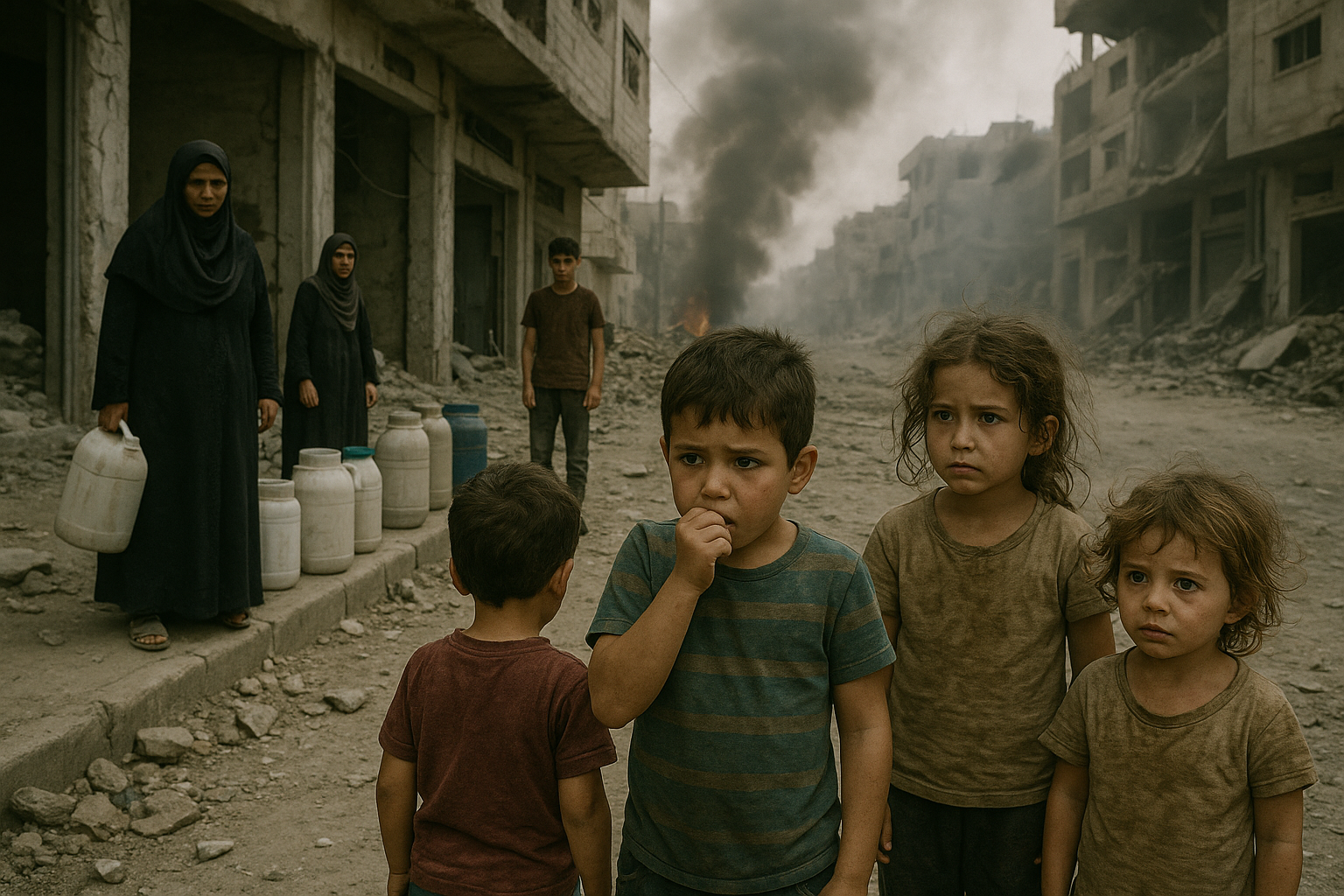ICJ Ruling Reaffirms Israel’s Legal Obligations to Palestinians, Calls for Urgent Action
The ICJ emphasized that compliance with international law must serve as the foundation for a sustainable ceasefire and a durable peace process.

In a landmark ruling, the International Court of Justice (ICJ) has made clear the extent of Israel's obligations under international law concerning its conduct in the Occupied Palestinian Territory (OPT), including Gaza. The Advisory Opinion, delivered yesterday, reaffirms the applicability of both international humanitarian law (IHL) and international human rights law (IHRL) to Israel's actions as the occupying power and outlines an urgent need for compliance to address the worsening humanitarian crisis.
ICJ Clarifies Israel's Legal Responsibilities
The ICJ's ruling underscores that as the occupying power, Israel bears full responsibility for ensuring that the people of Gaza and the broader occupied Palestinian territory have access to essential goods and services necessary for survival. These include food, water, electricity, fuel, and medical supplies—all of which have been critically restricted amid the ongoing conflict.
According to the Court, the right to life, the prohibition of torture or ill-treatment, the right to liberty and security, and the right to freedom of movement must be guaranteed at all times. The ICJ further reiterated the rights of Palestinians to family unity, health, education, adequate living standards, and freedom from discrimination, describing these as fundamental under international law.
The Court also reaffirmed the Palestinian people's right to self-determination, declaring that any measures undermining this right violate international legal norms, including the UN Charter and customary international law.
Human Rights and Humanitarian Law: A Dual Obligation
In its analysis, the ICJ emphasized that international human rights law continues to apply even during armed conflict, alongside humanitarian law. This dual applicability means that Israel must uphold the rights of civilians under instruments such as the International Covenant on Civil and Political Rights, the International Covenant on Economic, Social and Cultural Rights, and the Convention on the Rights of the Child, in addition to the Fourth Geneva Convention governing occupation.
Legal experts note that this reaffirmation has far-reaching implications. It rejects arguments that security concerns justify derogation from human rights commitments and stresses that obligations under international law remain binding regardless of the security situation.
Humanitarian Crisis Demands Immediate Action
The ICJ's findings come amid warnings from UN agencies that Gaza's 2.2 million residents face catastrophic conditions due to severe shortages of food, clean water, fuel, and medical care. According to the World Health Organization and the UN Office for the Coordination of Humanitarian Affairs (OCHA), most hospitals in Gaza are operating at minimal capacity, while widespread displacement has left hundreds of thousands living in makeshift shelters.
The ruling calls for "flooding Gaza with much-needed aid" and demands that Israel facilitate unrestricted humanitarian access. It also directs all other parties to the conflict, including non-state armed groups, to adhere strictly to international law by protecting civilian lives and refraining from acts that place them at grave risk.
Global Response and Legal Implications
International reactions to the ICJ's decision have been swift. Human rights organizations, including Amnesty International and Human Rights Watch, have urged immediate implementation of the Court's recommendations, arguing that failure to act would further erode the rule of law and risk deepening the humanitarian catastrophe.
The United Nations High Commissioner for Human Rights, Volker Türk, stated that the ruling "removes any ambiguity about the legal responsibilities of Israel and the urgent need to restore respect for fundamental human rights." Several states have also called for renewed diplomatic efforts to secure an immediate ceasefire, accompanied by accountability measures for violations of international law.
Towards Peace Anchored in Justice
The ICJ emphasized that compliance with international law must serve as the foundation for a sustainable ceasefire and a durable peace process. The ruling envisions a recovery pathway rooted in human rights, accountability, and development, urging all actors to transform the current truce efforts into a long-term framework for peacebuilding.
"The first step towards recovery," the Court stated, "is saving lives rather than placing them at risk." This entails not only humanitarian relief but also systemic policy changes that ensure respect for Palestinian rights and dignity.
As the international community weighs its response, the ICJ's Advisory Opinion stands as a powerful reminder that peace without justice and accountability cannot endure. The ruling compels all parties—state and non-state alike—to align their actions with the principles of humanity, legality, and respect for international order.
ALSO READ
-
Global Developments: From Gaza Stabilization Efforts to Hypersonic Weaponry
-
US-Led Ceasefire Efforts in Gaza: Rubio's Diplomatic Push
-
Heartache and Hope: Families Seek Closure Amid Body Handover in Gaza
-
Steven Fagin Appointed Civilian Lead in U.S. Peace Efforts for Gaza
-
Spain's High Court Probes Sidenor for Alleged Weapon Sales to Israel





